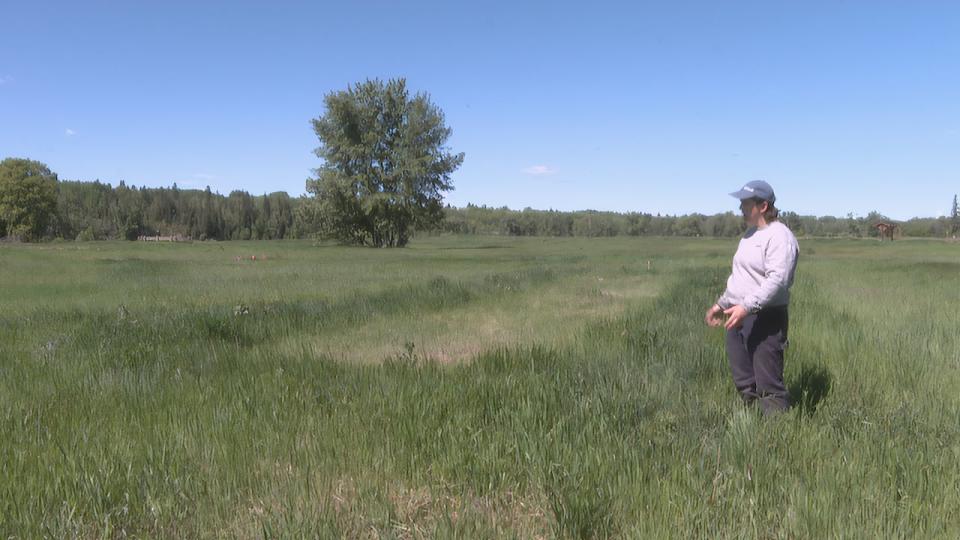A Calgary-based pilot project is bringing back native plant species to Fish Creek Provincial Park
Native plant species that were previously widespread at Fish Creek Provincial Park are slowly making a comeback, thanks to the efforts of a local initiative.
The Friends of Fish Creek Park Society is encouraging Calgarians to participate in their pilot project, called Grow With Us. The group is giving away free native plants to Calgarians in a bid to take their restoration efforts forward.
"We've been working with a couple of different groups to rescue plants from private development … what we've been doing is getting in there and salvaging thousands of live grassland species, live plants and harvesting seeds as well," said Emma Stroud, ecology and conservation team lead with the society, in an interview with the Calgary Eyeopener.
"What we're trying to do is create this circular seed economy basically where we give backyard gardeners, community gardens, schools, anyone who's interested. [We] will give them live plants or seeds and they can grow them."
The group hopes to eventually get back seeds from those growers and use them in their restoration efforts.
How does this process work, though? According to Stroud, those interested in being a part of the project will be able to pick up plants from the park over the weekend and share their details with members of the society.
The group will reach out later to the participants and collect seeds or unwanted seedlings for the restoration project.
Nic Blanchet, who is the executive director of The Friends of Fish Creek Park Society, believes this initiative is beneficial in more ways than one.
"We've learned through scientific research that when people come together as a community and they work toward something they care about and they're in fact giving, as it were, it has a lot of health benefits for them," he said.
"We are constantly looking for new opportunities, not only to just look after the park but also to find new ways to engage members of the community."
Being proactive

Stroud and her team members have also been collaborating with local players like the Alberta Native Plant Rescue Society to approach private developers and ask for land access before properties are stripped down for development.
"One of our biggest suppliers right now is Genesis, who's doing home construction south of Seton," Stroud said.
"So what we're able to do is get in there and salvage the plants before they put the development down, and then we bring them back into our nursery and allow people to come pick them up for their own projects."
LISTEN | Emma Stroud talks about the pilot project:
Fish Creek was historically a grassland ecosystem, according to Stroud, who said the park has been subjected to invasive weeds and other kinds of invasive ornamental species as a result of development.
The situation is grim — Stroud estimates that only around two per cent of the original grasslands are still intact.
While the Fish Creek Provincial Park stretches across more than 3,300 hectares of land, the native grassland restoration project will cover about 15 hectares for now.
"What this program is looking to do is kind of get a lot of species that aren't commercially available for purchase into basically a seed bank throughout the surrounding areas of the park," Stroud said.
"We'll use that seed bank to put it right back into our restoration sites and grow our grassland conservation program in Fish Creek."
Resilient and easy to maintain
The project will cover a vast array of plants, such as rough fescue grass, the Prairie sage, blanket flower, blazing star, yarrow, and more.
One of the most significant advantages of growing native plants is that they are more resilient to drought conditions and are low-maintenance in general, according to Stroud.
"We've been planting since the first week of April and they're not phased by any of the kind of inclement weather that other plants kind of wither away at," she said.
"This project is really just hoping to get a more sustainable seed source for those restoration projects and grow them kind of into perpetuity."


